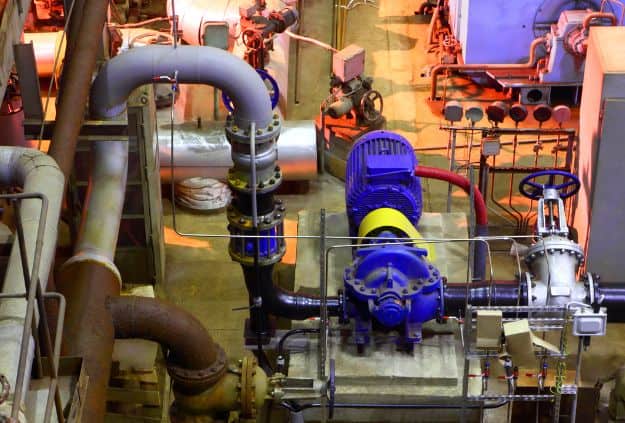Factors to Consider When Purchasing Used Industrial Equipment
You can save a lot of money by buying used industrial equipment. But before you do so, make sure you carefully consider the following factors.
1. Purchase Equipment from a Reputable Dealer
While used industrial equipment can be just as good as brand-new equipment, you can only be sure that it is in full working order if you buy from a reputable dealer.
When you go with a reputable and trustworthy vendor, you can ensure you purchase well-maintained equipment that is exactly how it is described in the listing.
That way, you can avoid the risk of inadvertently buying damaged or subpar machinery.
After all, the last thing you want is to spend money on industrial equipment that is worn-down, missing parts, or even defunct.
Buying from a reputable seller also enables you to get advice about which equipment would be best for your precise needs.
Reading online reviews and testimonials is one of the best ways of finding a reputable vendor. The more you know what previous customers’ experiences were like, the easier you will be able to find a dealer who is reliable and reputable.
2. Check the Maintenance History of Any Equipment You Are Considering Purchasing
Just like you need to have a good understanding of production and operations management to achieve world-class manufacturing, you need to have a good understanding of the maintenance history of any industrial equipment you buy.
To gauge how good any piece of used equipment is, you need to know its maintenance history.
When you buy machinery that has been well-maintained, you can be sure that it will deliver high performance and you will not experience any problems.
It is not always true that older machinery is worse than newer equipment, so you should look at more than just the hours logged when examining a piece of equipment’s maintenance history.
Second-hand equipment that has been carefully maintained will probably perform much more reliably and have fewer service issues than machinery that does not have a solid history of being well-maintained.
So, before you purchase any industrial equipment, ask to see proof that it has received preventive maintenance on a regular basis.
Depending on the type of equipment you purchase, that could include looking at things like fluid changes, oil changes, and air filter changes.
When you ask to see the maintenance history of a machine, you should also ensure that the equipment was not seized. That happens when the previous owner was unable to pay for the equipment in full, and it could be a sign that proper maintenance was not carried out.
You still have the option of buying equipment without a service history, but you should ensure it is in perfect working order and is much cheaper than machinery that comes with maintenance histories.
3. Consider the Age of the Equipment
Whether you are looking at air compressors from a private dealer or the stock of utilized lifts at RevelationMachinery, you should consider the age of any piece of equipment you are considering buying before you proceed with the purchase.
Older models are not necessarily bad buys. Indeed, they can potentially be better than newer models, depending on factors like the manufacturer and the amount of usage they have had.
So, check the annual usage and compare it with the average annual usage for that model. Also, before buying, you should check whether the machinery was subjected to certain weather conditions. You can then better determine whether the equipment will be a good buy.
Remember, just because a piece of equipment is older and has had a lot of use, it does not necessarily mean it is no good. If it has a solid maintenance history and appears to be in full working order, it could well be a fantastic used item that is ideal for your needs.
4. Perform a Thorough Inspection
One thing you definitely do not want to overlook when purchasing industrial equipment is the inspection process.
You need to conduct a thorough inspection to check for things like rust, repair welds, and hairline cracks.
Depending on the type of industrial equipment you are buying, you could need to perform specific checks, such as checking fluids to see if they are low, dirty, or contaminated. For instance, if you find oil has water in it, that could be a bad sign. You should also inspect machinery for things like oil leaks and worn-out cylinders.
If you can, you should conduct an inspection in person. It can also be very helpful to take along a qualified mechanic or service technician who knows exactly what to look for.
Though, seeing the equipment in person may not always be viable. For instance, you could live far away. If that is the case, make sure you can conduct a thorough virtual inspection. Ask the vendor if you can see detailed photographs and video footage.
And whether you conduct an in-person or virtual inspection, make sure the equipment matches the description in the sales listing.
5. Check Whether the Equipment Has a Title
Some industrial equipment is titled, which means there is a paper trail to clearly show the ownership of the equipment from the day of production up to its last previous owner.
If the type of machinery you are intending to buy typically comes with a title, you should carefully look through the documentation details to ensure everything is in order.
Though, you can purchase equipment without titles. If you do, just make sure you ask for proof of purchase from the dealer. You also need to make sure that there is no outstanding loan on the equipment you are considering buying.
6. Always Choose Quality Over Price
Lastly, it is more than worth mentioning that you should always choose quality over price.
You may be tempted to purchase the equipment at the lowest price, but if the equipment ends up frequently breaking down or not serving your operational needs, for instance, you will regret not having purchased higher-quality equipment; and you could be left out of pocket.
You should be able to get high-quality used equipment for a good price anyway, so do not cut corners by simply looking at the cost and forgetting about everything else.






